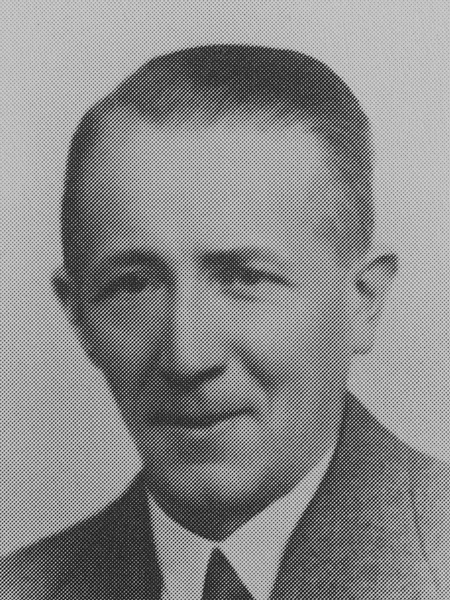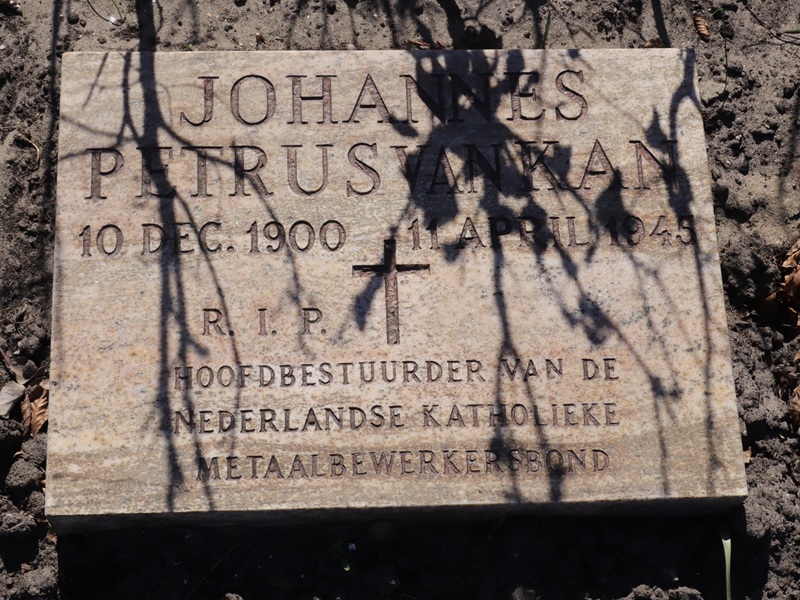Kan, van, Johannes Petrus
- Date of birth:
- December 10th, 1900 (Amsterdam/North Holland, Netherlands)
- Date of death:
- April 11th, 1945 (Zijpe/North Holland, Netherlands)
- Buried on:
- Dutch Honorary Cemetery Bloemendaal
Plot: 36. - Nationality:
- Dutch
Biography
Lived in Amsterdam. Son of Wilhelmus Arnoldus van Kan (15 December 1877 Noordwijk) and Maria Carolina Lüers (16 August 1877 Osnabrück, Germany). Married to Adriana Petronella ten Rouwelaar, born 5 October 1899 Amsterdam (six children).
Jan van Kan worked as a metalworker at a steel window factory in Amsterdam. At the end of 1940 he was appointed director of the Roman Catholic Metalworkers' Union St. Eloy in Utrecht. He continued his union work until the occupation forces “standardised” this union in July 1941. After this he received financial aid from the fund for Special Needs of the Roman Catholic Church. In March 1942 he was appointed as a civil servant in the distribution service in Amsterdam.
In 1942 Van Kan became a member of the illegal Group 2000. From his position in the distribution service in Amsterdam he ‘organised’ thousands of ration cards for people in hiding. He also took care of stamping (forged) documents.
His connections at various official institutions such as the Stamkaartenbureau (card office), the Bevolkingsregister (population register), De Arbeidsbeurs (labour exchange) and the Centrale voedselvoorziening (central food supply) were of great value to Group 2000. Many of the ration cards and documents also went to the approximately 1,800 people in hiding who were supported by the Van Dongen resistance group led by D. Bons. From July 1944, Van Kan also worked for the Reintje de Vos hit squad, which was founded by Bons.
On the afternoon of Tuesday 27 March 1945, a resistance meeting was held with Bons, the leader of the Reintje de Vos hit squad. Due to the betrayal of a neighbour from upstairs, the Sicherheitspolizei raided the meeting and arrested Van Kan, Bons and several other members of the fighting squad. They were taken to the detention centre on the Weteringschans and put on the Todeskandidaten list of people eligible for execution in reprisal.
On 11 April 1945, he was executed by firing squad in Zijpe along with nine others, including six members of his gang, in reprisal for the sabotage of a bridge in Zijpe. The occupying forces ordered the bodies to be buried in a mass grave in the dunes near Overveen.
Do you have more information about this person? Inform us!
Sources
- Photo 1: Eerebegraafplaats Bloemendaal
- Photo 2: Arjo Eijgelsheim
- - Overlijdensakte 52 d.d. 24 mei 1945 gemeente Zijpe.
- Eerebegraafplaats Bloemendaal




